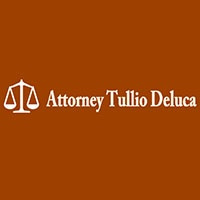Mildred Reorganization Lawyer, Pennsylvania
Not enough matches for Mildred Reorganization lawyer.
Below are all Mildred Bankruptcy & Debt lawyers.
Brett Michael Freeman
✓ VERIFIEDConsumer Protection, Consumer Bankruptcy, Litigation
Attorney Brett Freeman has devoted his career to helping those who are having financial difficulties, and to making sure that those individuals are tr... (more)
Tullio DeLuca
✓ VERIFIEDBankruptcy & Debt, Accident & Injury, Divorce & Family Law, Employment, Estate
Tullio DeLuca was admitted to bar in 1990 in Pennsylvania, US District Court, Middle, Eastern and Western Districts of Pennsylvania. Attorney DeLuca r... (more)
Molly Dempsey Clark
Election & Political, Family Law, Business Organization, Collection
Status: In Good Standing
Jason P Provinzano
Workers' Compensation, Banking & Finance, Bankruptcy, Personal Injury
Status: In Good Standing
FREE CONSULTATION
CONTACTKevin Tanribilir
Real Estate, Defect and Lemon Law, Estate, Bankruptcy, Accident & Injury
Status: In Good Standing Licensed: 28 Years
William L. Byrne
Arbitration, Collection, Commercial Banks, Complex Litigation
Status: In Good Standing Licensed: 25 Years
Francis J Hoegen
Corporate, Banking & Finance, Collection, Bankruptcy
Status: In Good Standing Licensed: 35 Years



